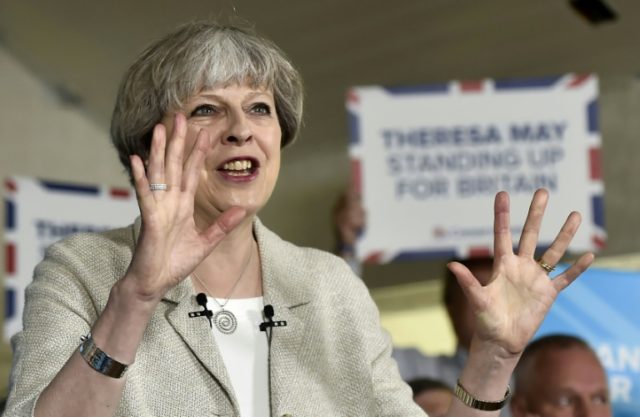British Prime Minister Theresa May has proposed further internet regulations following the London Bridge terrorist attack. Several major tech companies, as well as WikiLeaks, were quick to respond.
The Telegraph reports that Theresa May has proposed further internet regulation in an attempt to combat terrorism online. May stated that harsher regulations would “deprive the extremists of their safe spaces online” and blamed social media companies for providing a platform for terrorists to communicate.
“We cannot allow this ideology the safe space it needs to breed – yet that is precisely what the internet, and the big companies that provide Internet-based services provide,” said May, “We need to work with allied democratic governments to reach international agreements to regulate cyberspace to prevent the spread of extremist and terrorism planning.”
Theresa May’s Conservative party have held internet regulation as a key issue in their manifesto for some time with the aim to force internet providers to participate in further counter-extremism measures and make it harder for internet users to access pornography. The Investigatory Powers Act 2016 – or “Snoopers Charter” – was introduced in England in 2016 and expands the control of spying agencies and the government over the internet.
Whistleblowing service WikiLeaks took direct issue with May’s call for further internet regulation calling it “complete nonsense.”
Many tech companies have also stated their commitment to fighting terrorism on their platforms, as reported Ars Technica. Facebook’s Policy Director, Simon Milner described their platform as “hostile” to terrorists. “We want to provide a service where people feel safe. That means we do not allow groups or people that engage in terrorist activity, or posts that express support for terrorism. We want Facebook to be a hostile environment for terrorists,” said Milner
“Using a combination of technology and human review, we work aggressively to remove terrorist content from our platform as soon as we become aware of it—and if we become aware of an emergency involving imminent harm to someone’s safety, we notify law enforcement.” continued Milner, “online extremism can only be tackled with strong partnerships. We have long collaborated with policymakers, civil society, and others in the tech industry, and we are committed to continuing this important work together.”
Nick Pickles, Twitter’s head of Public Policy echoed Facebook’s statement saying, “Terrorist content has no place on Twitter. We continue to expand the use of technology as part of a systematic approach to removing this type of content. We will never stop working to stay one step ahead and will continue to engage with our partners across industry, government, civil society, and academia.”
Google also agreed with the social media platforms saying, “We are committed to working in partnership with the government and NGOs to tackle these challenging and complex problems, and share the government’s commitment to ensuring terrorists do not have a voice online”
Lucas Nolan is a reporter for Breitbart News covering issues of free speech and online censorship. Follow him on Twitter @LucasNolan_ or email him at lnolan@breitbart.com

COMMENTS
Please let us know if you're having issues with commenting.